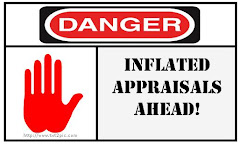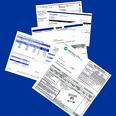The downward trend in the real estate market has encouraged mortgage fraud perpetrators to develop and utilize many schemes. The recent rise in foreclosures along with a depressed market, declining values and decreased demand has placed pressure on lenders, builders and home sellers. Fewer loans will be originated as lending practices tighten in response to the subprime lending crisis. Identity theft is a popular tool for use in mortgage fraud. With higher lending standards being enforced, individuals with good credit are valuable to perpetrators; therefore, at risk for identity theft and mortgage fraud schemes.
Illegal Property Flipping
Illegal flipping is a popular scam; here’s an example: An investor purchases a property for $20,000 and has the property fraudulently appraised for $80,000. The flipper then sells the house for $80,000 to a straw buyer who is able to get an 80% loan of $64,000. The flipper makes a $44,000 profit, while the home goes into foreclosure. The bank is left with a $64,000 mortgage owed on a home that is worth only $20,000. If the mortgage is FHA insured, the government absorbs the loss.
Builder-Bailout Schemes
Builder-bailout schemes occur when a builder or developer has difficulty selling their inventory, so they use fraudulent methods to sell the homes. This is most common in a depressed market and typically involves builders offering incentives to buyers which are not disclosed on the mortgage loan documents. For example, a builder wants to sell a house for $200,000. He begins by getting an inflated appraisal for $240,000 and finds a buyer. The lender funds the mortgage, believing that the buyer already paid the builder a 20% down payment of $40,000. The builder gets his $200,000 at closing and forgives the down payment; the lender has funded 100% of the home’s value. If the home should foreclose, the lender has no equity.
Seller Assistance Scams
Mortgage fraud perpetrators exploit the depreciating real estate market by assisting sellers when they provide buyers to conduct sales that are based on inflated appraisals. In a typical scam, the perpetrator determines the amount the seller is willing to accept and then hires an appraiser to inflate the value. He then finds a buyer who will obtain a mortgage for the inflated amount so the seller gets his asking price and the perpetrator gets the difference between the market value and the inflated value. If the mortgage should default, the lender forecloses, but is not able to sell the house for what is owed on loan because of the inflated appraised value.
Short Sale Scams
With the increase in foreclosures, short sales are a way out for many distressed homeowners. Lenders cut their losses by agreeing to accept less than what is owed to them on the mortgage rather than waiting out the foreclosure process while property values continue to decline. Here is an example of a pre-meditated short sale scam:
The perpetrator finds a straw buyer to purchase a property, providing fraudulent information about the buyer and the value of the house. He may even get the straw buyer to refinance the home to borrow money for repairs; he pockets the money and repairs are not made. He defaults on the payments and the home goes into foreclosure. When the straw buyer shows hardship and informs the lender that he cannot make the payments, he recommends the perpetrator as a buyer who will purchase the home on a short sale. The perpetrator gets the lender to accept less that he would receive in a foreclosure sale, and then sells the property for its actual value, or gets an inflated appraisal to conduct an illegal flip.
Foreclosure Rescue Scams
Escalating foreclosures have provided the opportunity for scammers who claim to be foreclosure help consultants who convince homeowners that they can help them save their homes from foreclosure. Some will agree to take over the mortgage payments while the homeowner rents their own home. Of course, they keep the rent payments but do not pay the mortgage payments. If the home has a lot of equity, the scammer may forge a deed, or trick the homeowner into signing a deed so they can secure a second loan without the homeowner’s knowledge, thus stripping the property’s equity. Many of these types of scams also involve an upfront consulting fee which adds to the scammer’s profit.
Read 10 Tips to Protect Yourself from Mortgage Fraud
Robert Shumake and Son
16 years ago








No comments:
Post a Comment